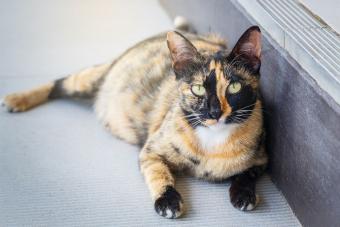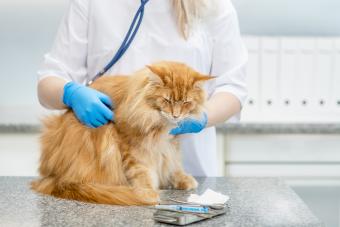
With their giant, colorful blooms, hydrangeas are a popular spring and summer flower. But if you have a feline friend, beware. Hydrangeas are poisonous to our cats and shouldn't be in or around your home. Even dried hydrangeas can be dangerous to your kitty.
Why Are Hydrangeas Dangerous?
At first glance, hydrangeas are nothing but a delightful addition to any garden or vase. However, beneath their beauty lies a potential threat to our cats. Hydrangeas contain a compound called amygdalin. This compound breaks down into cyanide when ingested.
While amygdalin levels are relatively low and typically not fatal, they can still pose health risks to our cats.
Signs of Hydrangea Poisoning
If your kitty has had a little nibble on your hydrangeas, here's what you might notice:
- Vomiting
- Diarrhea
- Lack of appetite
- Stomach upset
- Lethargy
- Respiratory distress
- Seizures
These symptoms usually manifest within a few hours of ingestion. And while these symptoms might not be severe in every case, it's always better to be safe than sorry.
What to Do if Your Cat Ingests Hydrangeas

First and foremost, don't panic. While hydrangeas aren't ideal snacks for our feline companions, the situation isn't usually dire. However, it's crucial to:
- Remove any plant material from your cat's mouth (if you can do so safely).
- Call your vet or a pet poison helpline. They can provide guidance tailored to your specific situation.
- Monitor your cat for symptoms and be prepared to take them to the vet if advised.
DO NOT attempt to make your cat vomit unless your vet explicitly says to do so. This could do more harm than good. Instead, wait for the steps your vet or pet poison helpline instructs you to complete.
The most toxic hydrangea species to your cat is the bigleaf hydrangea (Hydrangea macrophylla).
How to Prevent Poisoning With Outdoor Hydrangeas
If you have hydrangeas in your yard and you don't want to cut them down, there are a few steps you can take to prevent your kitty from getting into them.
- Install motion-activated sprinklers: Consider investing in a motion-activated sprinkler system near the hydrangeas. Once your cat gets sprayed, they won't want to go back to that area. And not only will it prevent your kitty from getting near your flowers, but other critters as well.
- Use plant-safe cat deterrent: There are special deterrents you can spray on your hydrangeas that will make them less desirable to your cat. They will smell the aroma and be deterred from the flowers.
- Create a barrier: You can create a barrier by making a rock garden surrounding the hydrangeas. Your cat may get to the plant, but they're not likely to stay there long if there's nowhere comfy to hang out.
Choose Another Plant
Unless you have your heart set on hydrangeas, look for other ornamental plants to put in and around your house. And even if hydrangeas are your favorite, it's recommended to keep them away from your cats to be on the safe side. We know it's hard to give up the beauty of the flowers, but there are plenty of others that will add charm to your living space.







